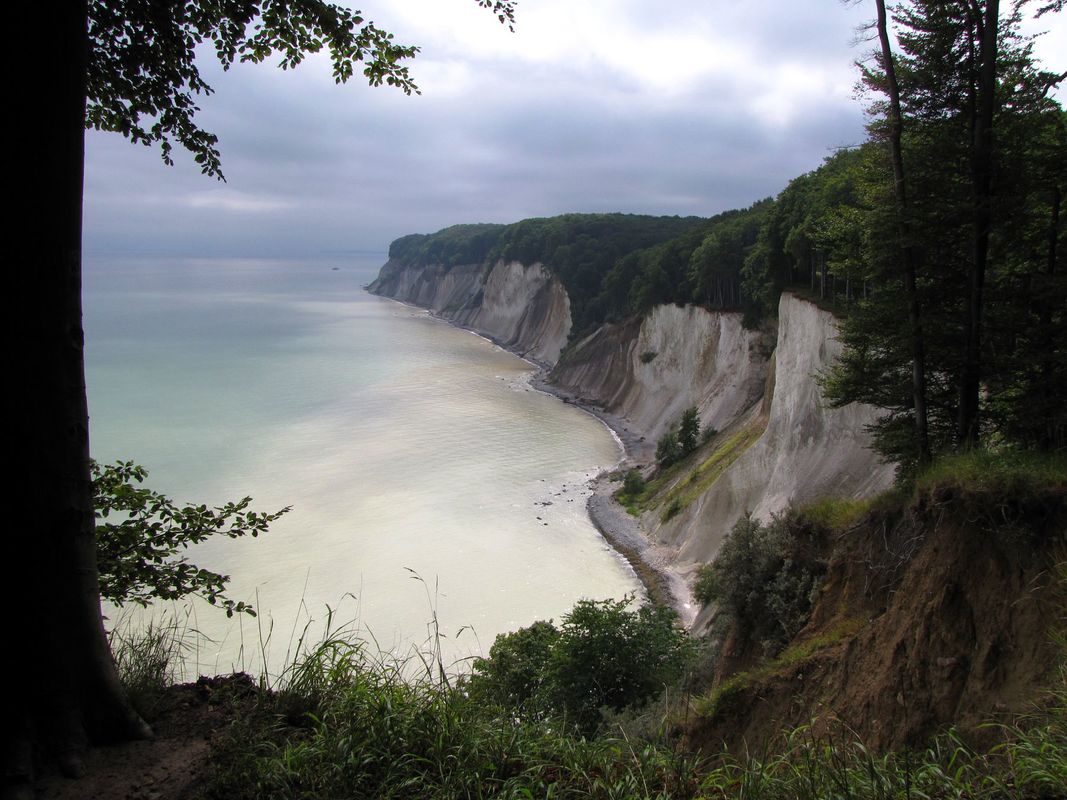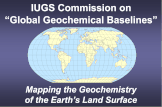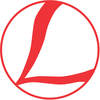Pre- and Post Congress: Training Courses, Workshops, and Summer Schools
|
We offer several workshops and field trips around the 5th YES Congress 2019. Workshops and field trips can be booked with the registration.
WorkshopsWORKSHOP: SEISMOLOGY FOR NON-SEISMOLOGISTS (CANCELLED)
Are you interested in seismological theory, studies or concepts, but are not (yet) an expert in the field of seismology? We want to offer a workshop that will provide you with a basic introduction to seismology and to methods that can be used to study earthquakes, seismic wave propagation, the Earth's interior and many more interesting things. We further want to introduce you to the world of Python programming and making use of some great, free and easy-to-use seismological software out there. The workshop is mainly directed to scientists with a non-seismological background in their early career stages (graduate student or postdocs) and will take place in Berlin in the first week of September 2019 as part of the 2019 YES congress. It is planned that the workshop will cover following topics:
Date: 4-6th September 2019 Venue: BGR, Federal Institute for Geosciences and Natural Resources, Wilhelmstraße 25-30, 13593 Berlin Max number of participants: 12 Arrival: Self-organized Accommodation: Self-organized Catering during the course: Snacks and lunch will be provided during the course Prerequisites: Basic programming experience, laptop with pre-installed Python Obspy (installation instructions will be provided in time) Contact: Stefanie Donner ([email protected]) or Peter Gaebler ([email protected]) WORKSHOP: LABORATORY ROCK TESTING AND TECTONICS (CANCELLED)
Our workshop on Laboratory Rock Testing and Tectonics might be your ticket to the fascinating world of material properties, fluid overpressures, deformation processes and linked structural geology. Based on our laboratory’s every-day business, the workshop will bring you fundamental training in geomechanics - including stress-strain diagrams, Mohr circles, fluid overpressures, microtectonics, rheology models and considerations on fault reactivation. Moreover, you will get an insight into quality control within a geomechanical laboratory. Who can apply We aim to welcome young, talented scientists from all kinds of disciplines: from pure laboratory analysis to extrapolating long-term in-situ physical rock properties, from outcrop to microscopic scale. How to apply - Application to the workshop is included in the registration to the conference - Three-Day-Workshop Monday, September 16 – Wednesday, September 18 Place: Bundesanstalt für Geowissenschaften und Rohstoffe (BGR) [Federal Institute for Geosciences and Natural Resources] Stilleweg 2 D-30655 Hannover How to get there: Via bus: https://www.flixbus.de/ Via train: https://www.bahn.de/p/view/index.shtm Workshop: Publication of research data related to scientific articles in the geosciences
Date: 9th September 2019 Location: Henry - Ford Building FU Berlin Max. Participants 30 The publication of research data fosters the reproducibility and quality of scientific work and opens up opportunities for novel research. Many research funders, universities and scientific organizations are therefore committed to the publication of research data as the standard of scientific practice. In order to discuss opportunities, benefits and challenges of publishing research data and to assist you in data publication, we are organizing this workshop on "Publishing Research Data in the Earth Sciences". The workshop demonstrates that publishing research data with existing infrastructures is easy. It deals with current standards and the description of the data as well as with legal aspects and possible publication locations and formats. The focus is on the publication of research data that forms the basis of a journal article. The workshop is organized by the Fachinformationsdienst Geowissenschaften (FID GEO). www.fidgeo.de/en/fid-geo/ Workshop: APPLIED GEOCHEMICAL SURVEYS AND GLOBAL GEOCHEMICAL BASELINES
Understanding the geochemical patterns on the Earth's surface requires the application of well-established geochemical surveying methods that can be applied at the local, regional and even global scale. The aim of the two-day workshop is to introduce the basic methods for designing and implementing geochemical surveys to young earth scientists. Further, to discuss technical issues that the professional applied geochemists have to consider during all stages of geochemical surveys, from field sampling to laboratory analysis, quality control and reporting of the results. The two-day course will include a series of lectures covering the following topics: 1. General Introduction in Applied Geochemistry 2. Geochemical Survey methods
5. Rock geochemical survey 6. Plant geochemical survey
8. Environmental contamination survey 9. Establishment of the global Geochemical Reference Network 10. Report writing All geochemical methods and techniques will be demonstrated by using real data of various case studies from around the Globe and hands-on examples and exercises will be provided to the participants during the workshop. A certificate of attendance will be given to all participants. Tutors: Alecos Demetriades and Ariadne Argyraki; IUGS Commission on Global Geochemical Baselines Date: 8th and 9th September 2019 Number of Participants: Venue: Freie Universität Berlin Geo-Campus Landwitz; Malteserstr. 74, 122449 Berlin, Room CO11 (Building C) How to get there: www.fu-berlin.de/en/redaktion/orientierung/lankwitz/index.html Workshop: The Last Mile
Disaster Risk Mitigation, Risk and Early Warning Communication – Lessons learnt New technologies, especially in Earth observation, enable us to make increasingly accurate predictions for natural events such as floods, volcanic eruptions, landslides and avalanches. Forecasting systems have been developed for tsunamis. Despite these technological advances, tragic and deadly events occur time and again. How well and how fast warnings and alerts are communicated plays an important role. The tsunami event in Indonesia 2018 in particular showed that it is the "last mile" that matters most, i.e. how efficiently warnings are passed on to the population, how people react on these warnings and what precautions have to be taken in advance to avoid damage to human lives and values as far as possible. Here aspects of communication, awareness-raising, participation and training of the population in the development of early warning systems play an important role. Using various case studies, it will be shown where the weak points in communication lie and where successful approaches for improved communication and involvement of the population can be demonstrated. Legal aspects and their implementation as well as law enforcement will also be discussed. Date: 9th of September Venue: Henry Ford Building Information on workshop: Jörn Lauterjung GFZ Director Data- and Information Services Co-Director Central Asian Institute for Applied Geosciences (CAIAG) Phone: +49 331 288 1020 Mobile: +49 172 990 3694 e-mail: [email protected] Maximum Participants: 100 Training Courses
International Training course on ocean bottom and amphibian experiment seismological data
In combination with the YES conference we offer a scientific training course two days before the conference on how to access and use ocean bottom and amphibian pool data, how to apply novel processing techniques, and about the „underwater potentials“ in modern broadband seismology. Program can be downloaded here: The training course is suited for young scientists interested to get in touch in new and quickly developing research fields in seismology. To register for the training course, please send a motivation letter and CV to [email protected] Deadline for registration: July 31, 2019 Venue: GFZ German Research Centre for Geoscience, Telegrafenberg, 14473 Potsdam Haus/House H VR 2 & VR 3 Date: 5th - 6th September 2019 Time: 9am -6pm each day Maximum participants: 20 Contact for Information: [email protected] Lectures (agreed) T. Dahm (GFZ) F. Krüger (University pf Potsdam) K. Hannemann (University of Leipzig) N. Harmon (University of Southampton) M. Schmidt-Aursch (AWI) Wayne Crawford (CNRS, IPGP) Simon Stähler (ETH Zürich) (more lectures will be invited) Summer SchoolsSummerschool: Coastal Hydrology (CANCELLED)
Join us for 5 days/4 nights on the beautiful German Wadden Island of Langeoog prior to the YES conference. During this summer school, you will learn about the hydrology and the water supply of islands, study the interaction between fresh– and saltwater, and groundwater investigation techniques. Enjoy the magnificent landscape in Germany´s second largest national park. Program On Monday 02.09.2019 at 10 am, we will meet at Oldenburg University for an introduction lecture at the Institute of Biology and Environmental Sciences. A three-hour train/bus ride will bring us to the Ferry at Bensersiel, from where we are going to depart to Langeoog Island Tuesday 03.09.2019 is reserved for an environmental excursion through the typical landforms of a Wadden island. On Wednesday 04.09.2019 we will be looking for freshwater discharge zones at the beach and visit the local water supplier on the island (OOWV). Thursday 05.09.2019 is our measurement day, when we will learn about and apply a selection of geophysical, hydrogeological and isotopic measurement methods. We will depart to the main land again on Friday morning 06.09.2019 and will arrive in Bensersiel before 10 am. Transportation to Oldenburg University (Monday 02.09.2019 - 10 am) and from Bensersiel (Friday 06.09.2019 - 10 am) is not included in the course and has to be taken care of individually. It´s advisable that you book your respective train or bus journey in advance (e.g. www.bahn.de or www.flixbus.de will bring you to the YES conference in Berlin). Prerequisites Some background in earth or environmental sciences is essential for a deeper understanding of the processes. If you are in doubt, please contact the summer school organizers. In addition, it is expected that you are able to ride a bike (provided) because cars are not allowed on the island. If you have any food incompatibilities, please let us know in advance. What to bring The weather is quite unpredictable and you will spend most of your time on the island outside. It is therefore important to come prepared, so make sure to bring:
The course fee covers the costs of:
Application The school has been cancelled. |
|









